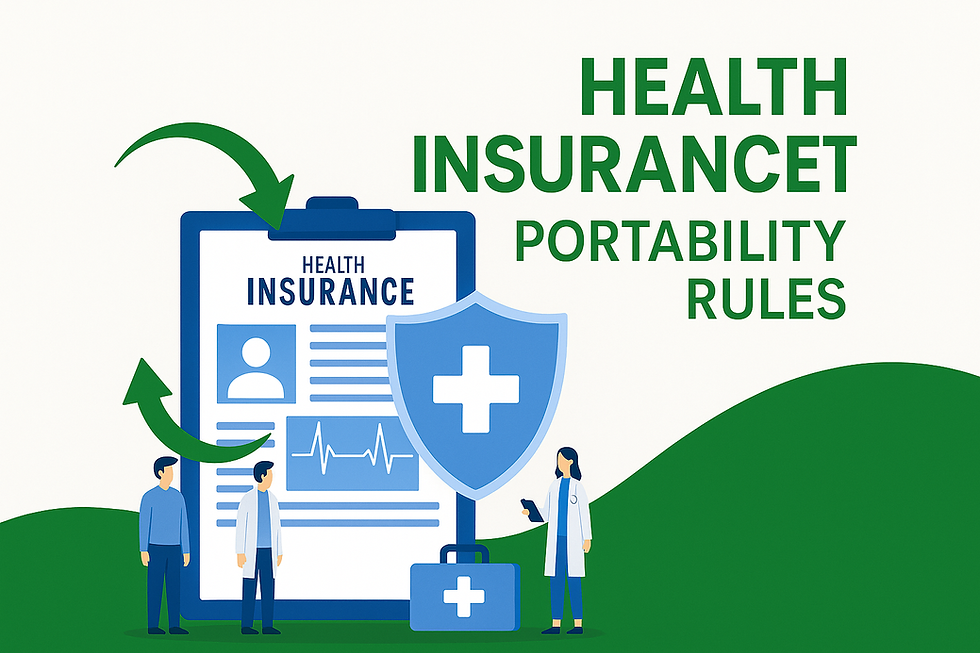"IRDAI's Latest Directive: How It Shapes the Future of Health Insurance Claims"
- Yash Ithape

- Jun 22, 2024
- 3 min read
In recent years, the Insurance Regulatory and Development Authority of India (IRDAI) has been at the forefront of shaping the regulatory landscape for health insurance in the country. Their latest directive, aimed at streamlining the process of health insurance claims, is set to significantly impact both insurers and policyholders alike. This article delves into the details of IRDAI's new directive, its implications, and what it means for the future of health insurance claims in India.
Understanding IRDAI's Directive
IRDAI, as the regulatory body overseeing the insurance sector in India, plays a crucial role in setting guidelines and regulations that govern the operations of insurance companies. The latest directive focuses specifically on improving the efficiency and transparency of health insurance claims. One of the key aspects of this directive is standardization. IRDAI has mandated standardized procedures for the submission, processing, and settlement of health insurance claims to ensure consistency across insurers.
Key Changes Introduced by IRDAI
1. Standardized Claim Forms
A major reform introduced by IRDAI is the implementation of standardized claim forms across all health insurance policies. This move aims to simplify the claim submission process for policyholders and reduce the chances of errors or discrepancies in information provided. Standardized claim forms ensure that insurers receive uniform data, streamlining the initial stage of claim processing.
2. Timely Settlement Guidelines
Another significant aspect of the directive is the emphasis on timely settlement of claims. IRDAI has set clear guidelines for insurers regarding the time frame within which claims must be processed and settled. This step is aimed at addressing the issue of delayed claim settlements, which has been a persistent concern for policyholders.
3. Grievance Redressal Mechanism
To enhance customer satisfaction and ensure fair treatment, IRDAI has strengthened the grievance redressal mechanism related to health insurance claims. Insurers are now required to expedite the resolution of complaints related to claim processing and provide policyholders with a transparent channel to escalate grievances if necessary.
Implications for Insurers and Policyholders
For Insurers:
Insurers will need to adapt their internal processes and systems to comply with IRDAI's new directives. This may involve upgrading IT systems to support standardized claim forms and implementing robust mechanisms for tracking and monitoring claim settlements within stipulated time frames.
For Policyholders:
The directive brings positive changes for policyholders, including faster claim processing and settlement. Standardized claim forms reduce the complexity of submitting claims, while stringent timelines ensure that policyholders receive timely compensation for medical expenses covered under their insurance policies.
Challenges and Opportunities
While IRDAI's directive is a step forward in enhancing the efficiency of health insurance claims, it also poses certain challenges for insurers. Adapting to new regulatory requirements may require significant investments in technology and infrastructure. However, insurers that successfully implement these changes stand to benefit from improved customer satisfaction and operational efficiency.
Conclusion
In conclusion, IRDAI's latest directive marks a pivotal moment in the evolution of health insurance claims in India. By standardizing procedures, enhancing transparency, and enforcing timely settlements, IRDAI aims to protect the interests of policyholders and promote fair practices within the insurance industry. While challenges exist in the implementation phase, the long-term benefits of these reforms are expected to outweigh initial hurdles. As insurers and policyholders adjust to the new regulatory framework, the future of health insurance claims in India looks poised for positive transformation under IRDAI's proactive guidance.
3.5










Comments